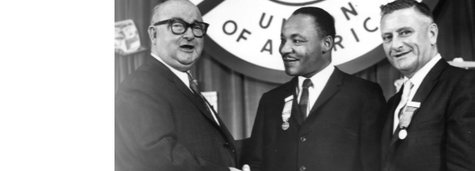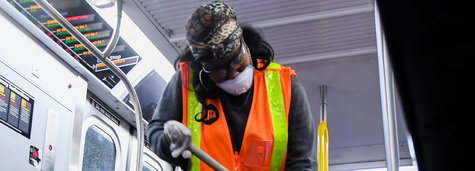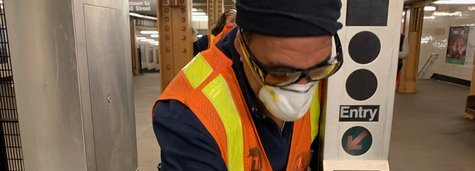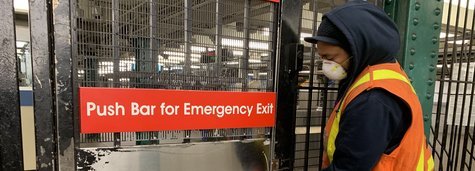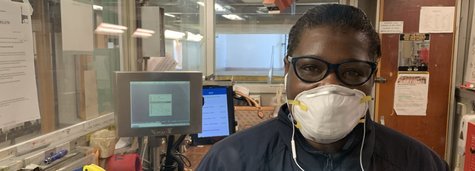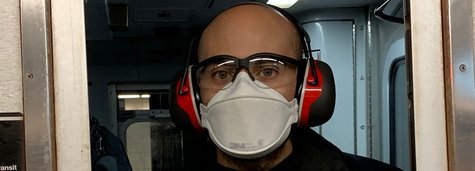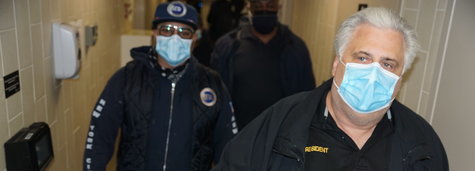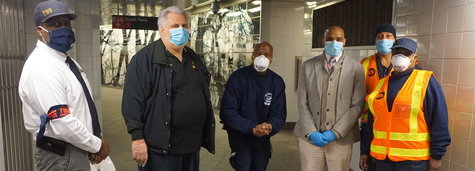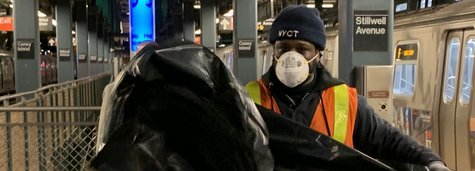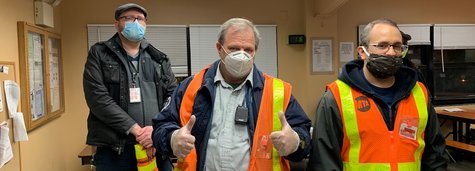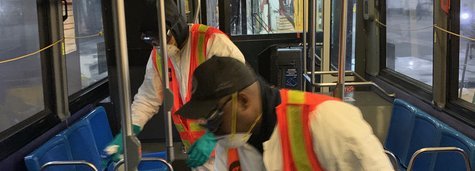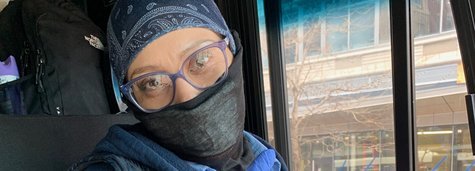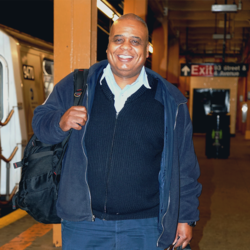Kudos for a Conductor Who Loves His Job
He came into 95th Street in Bay Ridge one morning in mid-April, a few minutes after an RCI left the station after checking out the recently installed CBTC system — something NYCT wants to use to sideline our Conductors. But not if TWU Local 100 can help it.
His time in transit has been bracketed by two tragedies — the attack on the World Trade Center that came just months after he started on the job, and COVID-19.
Working through COVID “was horrible, a horrible experience. Co-workers getting sick, people passing away. As it went on, we learned more, because at first no one knew what to do — people were getting sick, they didn’t know who to call. I lost the smell and taste, had a dry cough, I had antibodies to the virus so I isolated. We didn’t know what to do. It was rough.”
After two weeks in quarantine, Flannagan was back on the job, working through the rest of the pandemic maintaining service, at that time on the F line.
Conductors like Flannagan do something machines can’t — make people feel good about their daily commute. Asked from where he gets his positive attitude, he reflected for a moment, and then said: “Every-day customer service. We’re the front-line employees — maybe we’re giving directions, maybe we can make somebody’s day. That’s what we’re supposed to do.”
“Two years ago, I had two total hip replacement surgeries,” he continues. “It gives you a different perspective. Now your health is better, you feel better, your attitude is better. Nothing can bother you. Great pension, great medical, good people to work with. It lets the time go by.
“In the beginning, it’s rough — because when you’re extra extra, you live here. So you need somebody with you — your partner, wife, girlfriend — who understands the dynamics of the job, because it’s demanding. Flannagan’s wife is a school bus driver. “I told her, I don’t know how you did it — raised four kids, and had to deal with me at night.”
He says the Union has been good to him over the years — “excellent, they take very good care of me” — and adds that he has advice to new members with the contract negotiations coming up: “Most important are the benefits and your pension. Don’t worry about the money. I know you’re trying to get a couple more dollars per hour — but then you may have to pay more for the benefits. We have an excellent medical plan. I went to the Hospital for Special Surgery for my hip replacements. Zero dollars. The only thing I had to pay for was the walker, $44. And I got mad about that.”
He was asked whether the job necessitated the surgery.
“Definitely. The wear and tear, up and down, your diet’s not the best. You’re always on the move. I didn’t come here like this. I tell people, that’s a $50,000 surgery — two or three dollars an hour can’t pay for that. You see the big picture — especially when you’ve got a family. My kids and wife wear glasses, they go to Cohen’s, no problem. I’d rather have the benefits right, and the pension right, and you’re OK.”
“The job is stressful — customer-wise and management-wise. Sometimes you feel like the supervisors are out to get the employees, but we’re supposed to be on one team. That moves your anxiety level up, and it’s a reason why people want to leave.
“The homeless — working through COVID — we never shut down, and we’re dealing with everything. You don’t know who’s mentally sick, people are smoking on the train, coming to you and complaining. Some days are not pleasant. But you love the kids who love the trains — always.”
In spite of the evident enjoyment he gets from work, he says he’s ready to retire the minute he’s eligible. He’s ready for his life’s second act while he still has the energy and vitality that mark him on the job. “I’m a cruise guy,” he says, with 30 taken so far, mostly on Royal Caribbean. “My wife and I have two planned for this summer.”

